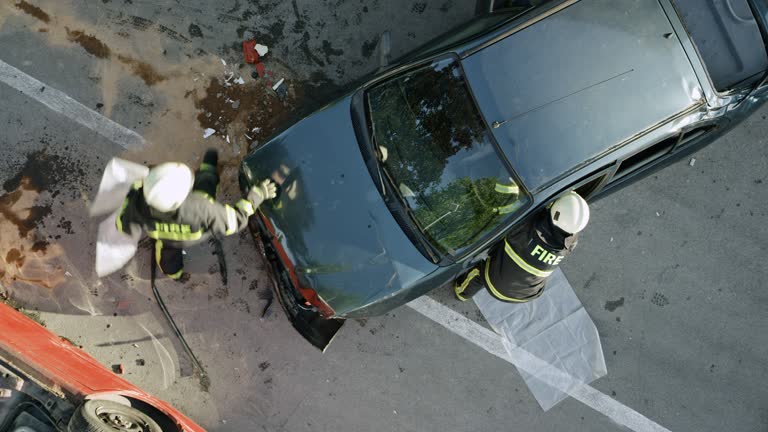the Wall, We Are Right
There With You
Gross vehicular manslaughter while intoxicated is one of California’s most serious driving-related offenses, detailed under California Penal Code Section 191.5(a). This statute outlines the unlawful killing of a human being without malice, which occurs when an individual, driving under the influence of drugs or alcohol, commits grossly negligent acts leading to another person’s death. The gravity of this crime is reflected in its severe penalties, which include lengthy prison terms and significant fines. As a felony offense, it carries long-term consequences, such as a criminal record, loss of driving privileges, and strikes under California’s Three Strikes Law.
This article delves into the details of California Penal Code Section 191.5(a), its key legal components, penalties, and defenses, and provides guidance on the importance of seeking immediate legal counsel when facing such charges.

Under Penal Code 191.5(a), gross vehicular manslaughter while intoxicated is defined as:
What makes this statute distinct from other types of manslaughter is the gross negligence factor. Gross negligence goes beyond ordinary negligence or carelessness; it refers to reckless behavior that exhibits a blatant disregard for human life or safety. For instance, driving at an excessively high speed or ignoring basic traffic laws while intoxicated, leading to a fatal crash, would likely fall under this category.
To convict a person of gross vehicular manslaughter while intoxicated, the prosecution must prove several critical elements beyond a reasonable doubt:
In vehicular manslaughter cases, the distinction between gross negligence and ordinary negligence is pivotal. While ordinary negligence refers to failures to exercise reasonable care, gross negligence involves an extreme lack of care, bordering on recklessness. For instance, driving while moderately distracted might be deemed ordinary negligence, while driving under the influence of alcohol, at high speeds, and ignoring traffic signals would likely rise to gross negligence.
Gross negligence is the defining factor that elevates a charge to Penal Code 191.5(a). If the defendant’s actions were merely negligent, they might face lesser charges, such as vehicular manslaughter under Penal Code 191.5(b), which deals with acts of ordinary negligence while intoxicated.
Convictions under Penal Code 191.5(a) result in harsh penalties. If found guilty, a defendant can face:
Facing a charge under Penal Code 191.5(a) is a daunting experience, but several defenses can be raised to contest the allegations. Some of the most common defenses include:
One of the core elements of this offense is that the defendant was under the influence of alcohol or drugs at the time of the accident. A skilled defense attorney might challenge the validity of the field sobriety or chemical tests that indicated intoxication. For instance, improper calibration of a breathalyzer or mishandling of blood samples could raise doubts about the accuracy of the results.
While the defendant might have made a mistake while driving, the defense could argue that their behavior didn’t rise to the level of gross negligence. For example, a momentary lapse in attention might constitute ordinary negligence rather than the reckless disregard for human life required under Penal Code 191.5(a).
To secure a conviction, the prosecution must prove that the defendant’s gross negligence was the proximate cause of the fatality. In some cases, an intervening cause—such as the negligence of another driver, hazardous road conditions, or a mechanical failure—might have played a role in the accident. If it can be demonstrated that the defendant’s actions were not the direct cause of death, the charges may be reduced or dismissed.
Under California law, a person facing a sudden and unexpected emergency is only required to act with the same care that an ordinarily cautious person would exercise under similar circumstances. If the defendant faced an unforeseen crisis (such as avoiding a reckless driver or an animal darting into the road) and acted reasonably in response, they may not be guilty of gross negligence.
To further illustrate, consider a situation where John, a defendant, was driving home from a friend’s party. He had consumed alcohol earlier in the evening, but believed he was sober enough to drive. On the way, John ran a red light and collided with another vehicle, resulting in a fatality. If John’s blood alcohol content (BAC) exceeds 0.08% and it’s determined that his decision to drive while intoxicated and running the red light constituted gross negligence, he could be charged under Penal Code 191.5(a).
However, if John’s defense attorney can show that the traffic light was malfunctioning and that John was driving within the speed limit, it may be possible to argue that his actions were not grossly negligent. Alternatively, the defense could present evidence that the victim’s own driving contributed to the accident, weakening the prosecution’s causation argument.
Facing charges under Penal Code 191.5(a) can have life-altering consequences, including lengthy imprisonment, heavy fines, and the stigma of a felony conviction. For those charged with gross vehicular manslaughter while intoxicated, securing legal representation is crucial to mounting a robust defense. An experienced criminal defense attorney can scrutinize the prosecution’s case, challenge evidence, and explore potential defenses to reduce or dismiss the charges.
If you or someone you know is facing gross vehicular manslaughter charges, contact our experienced attorneys at Power Trial Lawyers in Los Angeles or Orange County for a free consultation. We specialize in criminal defense and will fight tirelessly to protect your rights. Call us at (888) 808-2179 today to discuss your case in detail and explore your legal options.